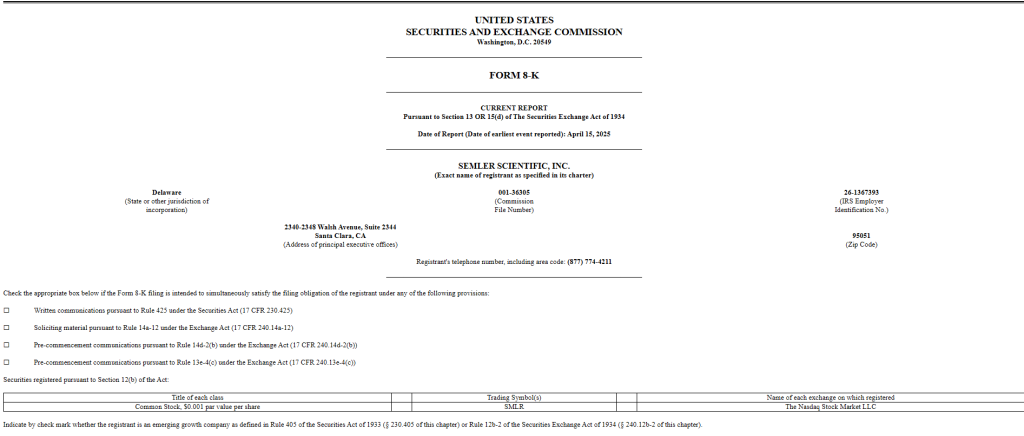Bitcoin
US Government Moves 10,000 Bitcoin From Silk Road Bust, Here’s The Destination

The United States (US) government has recently moved a whopping 10,000 Bitcoin (BTC) seized from Silk Road, a notorious online black market platform. Over the years, the government has executed multiple large-scale Bitcoin transfers, strategically relocating these assets to new wallets or different exchanges.
US Government Moves 10,000 BTC To Coinbase Prime
In an X (formerly Twitter) post on August 14, Arkham Intelligence, a blockchain analytics platform uncovered a new Bitcoin transfer conducted by the US government. According to Arkham’s reports, the government had transferred 10,000 BTC, valued at $593.5 million, from its cache of assets seized during the take down of Silk Road.
This massive Bitcoin transfer has effectively caught the attention of the crypto community, sparking speculation about its destination and the potential impact on the already struggling market.
In November 2021, the US government had seized over 50,000 BTC from the Silk Road Dark web internet marketplace. At the time, the total value of the confiscated Bitcoin was worth approximately $3.36 billion.
Arkham Intelligence has revealed that the wallet address, bc1ql, received the 10,000 Silk Road BTC from a crypto wallet said to be associated with the US government. This substantial BTC was then directed to 33J, a Coinbase Prine deposit wallet.
Considering the large amount BTC involved in the government’s latest transfer, many crypto community members have questioned whether the government intends to sell off Bitcoin. A potential sale could have a drastic effect on the crypto market, which is still recovering from major crashes in Bitcoin, Ethereum and other leading cryptocurrencies.
Although deposits to a crypto exchange often suggest an intention to sell off a crypto asset, in this case, the government may have moved the 10,000 BTC for custody reasons. To provide more context, on July 1, the US Marshals Service, a division of the US Department of Justice (DOJ) selected Coinbase Prime as its partner to provide custody and advanced trading service for large-cap digital assets.
Bitcoin Price Falls Below $59,000
Following news of the US government’s large-scale Silk Road BTC transfer, the price of Bitcoin fell significantly. According to CoinMarketCap’s data, Bitcoin is presently trading sideways, falling below the $59,000 price mark.
Over the past few weeks, Bitcoin’s price has been on a notable downward trend, experiencing major price swings as it attempts to maintain a foothold above $60,000. At one point, the cryptocurrency crashed by more than 20%, largely due to widespread liquidations and massive sell-offs from whales and the German government.
With speculation mounting about a potential BTC sell-off by the US government, Bitcoin’s price could face increased volatility and further declines. As of writing, the cryptocurrency is trading at $58,321, marking a substantial 4.11% decline in the last 24 hours.
Featured image created with Dall.E, chart from Tradingview.com
Bitcoin
Semler Scientific Files To Buy $500-M In Bitcoin


Semler Scientific is looking to raise $500 million in new securities after settling a large case with the Department of Justice, according to company filings. The health care technology company will use some of the money to expand its crypto holdings, which are already in excess of 3,000 coins.
Company Enters $30 Million Settlement With Justice Department
As per recent Securities and Exchange Commission (SEC) filings, Semler Scientific has reached a $29.75 million settlement with the Department of Justice regarding marketing practices for its QuantaFlo product. The probe, which started in 2017, centered on potential violations of federal anti-fraud laws regarding the manner in which the company marketed its flagship product.
The settlement negotiations progressed in recent months following years of cooperation with several subpoenas. The deal is not complete yet, according to the company’s Tuesday SEC filing, but Semler has already obtained a way to finance the payment.

Semler Scientific's filing with the SEC. Source: US SEC.
Coinbase Loan To Fund Settlement Without Selling Bitcoin
Instead of liquidating its cryptocurrency holdings, Semler intends to use a loan from Coinbase to settle the DOJ case. The loan will be secured by the company’s large Bitcoin reserves, which stand at 3,190 BTC valued at about $267 million at current market prices.
This funding strategy enables Semler to satisfy its legal requirements without liquidating its cryptocurrency holding. With Bitcoin as collateral, the company can preserve its balance sheet strength while fulfilling the settlement needs.
Half-Billion Dollar Securities Filing Points To Bigger Crypto Plans
Apart from the settlement expenses, Semler has submitted an S-3 registration to the SEC to sell $500 million worth of securities. The filing indicates the company is not merely raising cash to pay the DOJ settlement but wants to increase its Bitcoin holding substantially.

Image: Threads
The action is made at a time when other businesses continue to accumulate Bitcoin into their coffers. According to reports in the filing, Michael Saylor’s firm recently bought 3,450 bitcoins worth $286 million, increasing its holdings to 531,640 bitcoins. Another company, Metaplanet, acquired $26 million worth of Bitcoin over the same time.
Image: Brookings Institution
Market Analysts Remain Bullish Despite Price Swings
The timing of Semler’s intended Bitcoin buys is during market volatility yet also forecasts of extreme price appreciation. An analyst, who goes by the handle “Titan of Crypto” forecasted Bitcoin to hit $137,000, although no timeframe was given for that price level.
The healthcare technology firm has not indicated precisely when it will finish its securities offering or make further Bitcoin buys. Nevertheless, the SEC filing clearly indicates that adding to cryptocurrency holdings is still a priority in addition to paying for the DOJ settlement.
Featured image from Pexels, chart from TradingView

Editorial Process for bitcoinist is centered on delivering thoroughly researched, accurate, and unbiased content. We uphold strict sourcing standards, and each page undergoes diligent review by our team of top technology experts and seasoned editors. This process ensures the integrity, relevance, and value of our content for our readers.
Bitcoin
ETF Issuers Bring Stability to Bitcoin Despite Tariff Chaos

BlackRock’s Bitcoin ETF is in the top 1% of performers in this category despite tariff chaos. Analysts theorize that the issuers are stabilizing Bitcoin’s volatility, and the ETF market will make BTC more secure in the future.
The issuers act as major whales, buying up any token dumps from retail investors. However, this new stability is entirely contingent on these powerful firms, which are exposed to broader macroeconomic concerns.
Are the ETFs Stabilizing Bitcoin?
The threat of Trump’s tariffs has brought chaos and uncertainty into global markets, but the price of Bitcoin has been relatively fine. Although it has fallen from its all-time high in January, its price shelf is still well above its performance before the November election.
According to one analyst, the ETFs may be providing Bitcoin with this extra stability:
“Bitcoin ETFs have eked out positive inflows past month and YTD and IBIT is +2.4 billion YTD (Top 1%). Impressivem and in my opinion, helps explain why BTC’s price has been relatively stable: its owners are more stable. ETF investors are much stronger hands than most think. This should increase stability and lower volatility and correlation long term,” claimed Eric Balchunas.
Since the Bitcoin ETFs first hit the market, they’ve totally transformed the crypto industry, but it’s been difficult to quantify that transformation.
However, this impending economic crisis has given analysts a useful chance to collect hard data from a stress test. Balchunas emphasized that ETF issuers had a powerful demand for BTC, which has powered some changes.
Over the last few months, US ETF issuers have been buying tremendous amounts of Bitcoin. Collectively, they surpassed Satoshi’s holdings in December and bought 20x as much BTC as the global mining output in January. Who met this apparent crisis in supply? Retail investors.

Bitcoin is more integrated than ever into traditional finance, and that presents a few opportunities. For any number of reasons, retailers have been compelled to dump their tokens.
Normally, these actions could spook the markets, but ETF issuers (and Michael Saylor’s Strategy) have been willing to buy as much Bitcoin as possible.
In other words, these whales have done a lot to hold up confidence in the entire market. Ideally, ETF issuers will have a mostly positive impact on the sector, potentially curing Bitcoin’s infamous chronic volatility.
Unfortunately, this substantial change comes with serious practical drawbacks, even discounting fears of de-decentralization. Since the ETFs transformed the market like this, Bitcoin has been more entangled than ever with broader macroeconomic trends.
These trends, however, could force these big whales to sell. Can we afford to tie Bitcoin’s fate to these actors?
The ETF issuers have a high confidence in Bitcoin, which has kept its price steady throughout the tariff chaos. If they lose that confidence for any reason, it could cause a powerful demand crisis.
This investment trend has been a tremendous benefit to the crypto industry, but it’s important to keep an eye on the potential risks involved.
Disclaimer
In adherence to the Trust Project guidelines, BeInCrypto is committed to unbiased, transparent reporting. This news article aims to provide accurate, timely information. However, readers are advised to verify facts independently and consult with a professional before making any decisions based on this content. Please note that our Terms and Conditions, Privacy Policy, and Disclaimers have been updated.
Bitcoin
China Liquidates Seized Crypto to Boost Struggling Treasury


Amid mounting economic challenges and a growing pile of confiscated cryptocurrencies, local governments in China are increasingly liquidating seized digital assets to bolster strained public finances.
The practice raises legal and regulatory questions, especially concerning China’s blanket ban on crypto trading.
China Selling Seized Crypto To Bolster Treasury
China reportedly held around 15,000 Bitcoin (BTC) worth $1.4 billion by the end of 2024. According to River, a Bitcoin investment firm, this places the country among the top 15 global holders of the asset.
However, reports suggest China’s local governments are offloading digital currencies through private firms despite the national crypto ban.
Cas Abbe, a Web3 growth manager, and Binance exchange affiliate, noted on X that the dump in crypto prices may partly stem from these offloading activities.
“Local governments in China are selling seized crypto to top up their treasury. Despite the crypto trading ban in China, local governments are using private companies to offload their holdings. This explains pretty much the dump even before tariff news hit the market,” Abbe noted.
The surge in liquidations comes as authorities grapple with inconsistent policies for handling crypto seized from criminal investigations, which spiked sharply in 2023.
Over $59 billion was tied to crypto-related crimes in China that year. Blockchain security firm SAFEIS reported that more than 3,000 people were prosecuted for offenses ranging from internet fraud to illegal gambling.
Despite Beijing’s ban, local governments have reportedly turned to private firms to offload confiscated tokens. Specifically, they are converting them into cash to fund their treasuries.
Jiafenxiang, a Shenzhen-based technology firm, has sold more than 3 billion yuan ($414 million) worth of digital assets in offshore markets since 2018. Documents reviewed by Reuters link the company to liquidation deals with local authorities in Xuzhou, Hua’an, and Taizhou.
Though practical for cash-strapped regions, the process is legal gray territory. Such practices risk undermining the country’s crypto enforcement regime without clear regulatory frameworks.
“This raises so many questions about transparency. How are they even doing this legally?” noted one analyst in a post.
Experts are now calling for urgent regulatory reforms. These include judicial recognition of crypto as assets and the creation of standardized disposal mechanisms.
Some are even floating the idea of building a centralized national crypto reserve. This mirrors Trump’s administration’s proposals to manage seized assets more strategically.
Disclaimer
In adherence to the Trust Project guidelines, BeInCrypto is committed to unbiased, transparent reporting. This news article aims to provide accurate, timely information. However, readers are advised to verify facts independently and consult with a professional before making any decisions based on this content. Please note that our Terms and Conditions, Privacy Policy, and Disclaimers have been updated.
-

 Altcoin16 hours ago
Altcoin16 hours agoMantra (OM) Price Pumps As Founder Reveals Massive Token Burn Plan
-

 Altcoin23 hours ago
Altcoin23 hours agoExpert Reveals Current Status Of 9 Ripple ETFs
-

 Market24 hours ago
Market24 hours agoArbitrum RWA Market Soars – But ARB Still Struggles
-

 Bitcoin23 hours ago
Bitcoin23 hours agoIs Bitcoin the Solution to Managing US Debt? VanEck Explains
-

 Bitcoin22 hours ago
Bitcoin22 hours agoChina Liquidates Seized Crypto to Boost Struggling Treasury
-

 Market21 hours ago
Market21 hours agoEthereum Price Dips Again—Time to Panic or Opportunity to Buy?
-

 Ethereum19 hours ago
Ethereum19 hours agoEthereum Breakout Imminent? Analyst Expects ETH Price Surge To $2,000
-

 Market18 hours ago
Market18 hours agoBNB Burn Reduces Circulating Supply by $916 Million

























